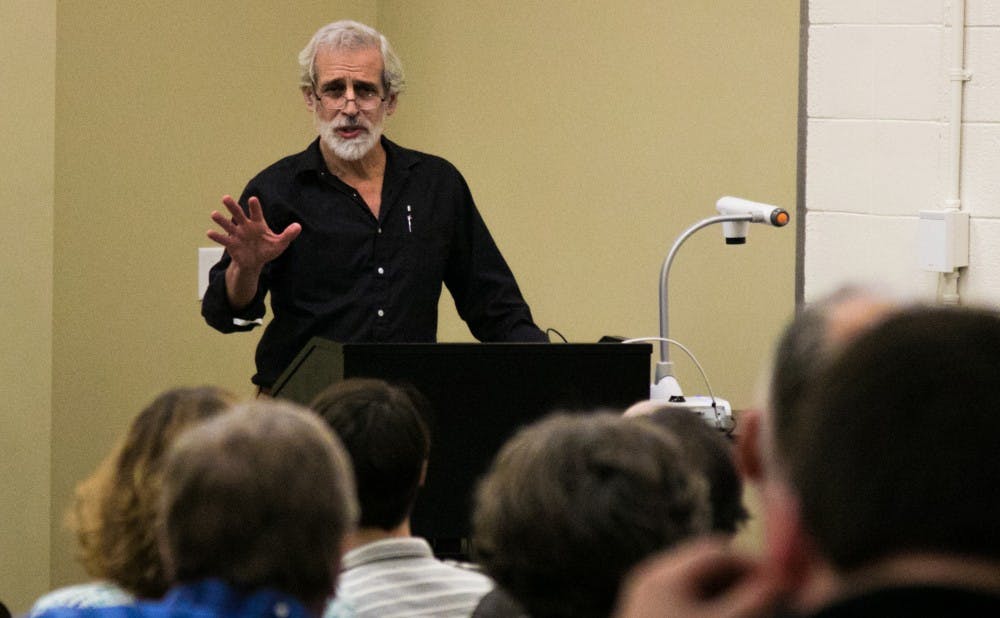As the reporter who uncovered the truth about the death of Laquan McDonald at the hands of a Chicago Police Department officer, Jamie Kalven offered his insights on police brutality and institutionalized racism during a talk Wednesday evening.
In 2014, McDonald was fatally shot by CPD officer Jason Van Dyke 16 times, and eventually Van Dyke was charged with first-degree murder. He has been suspended from the CPD without pay and is still facing charges.
A seasoned investigative journalist and human rights activist, Kalven demonstrated how the CPD denied the facts of McDonald’s murder and justified—instead of investigating—his death. The incident emphasizes the importance of increased transparency and public accountability to prevent institutional denial, he said.
In his talk—which was attended by about 60 people—Kalven argued that the CPD's response was regrettably just standard operating procedure for the department.
“A crisis if you think about it is a departure from the norm, and I think what we’re reckoning with in Chicago and nationally is in fact the norm,” Kalven said. “I think we’re dealing with something that’s in the groundwater and DNA of the institutions and that is at the heart of their operational logic and structure.”
He said that the department created a false narrative in its original press release hours after McDonald’s death, which he argued highlights how police officers acted to protect the department even without instruction. Kalven also said officers had held several civilians who witnessed the scene for hours to make sure their accounts aligned with the official narrative.
“That orientation is so strong that it raises the possibility that the gravitational field of institutional imperatives is so strong that they don’t see the wrongdoing,” Kalven said. “They see it as a problem to be solved in the interests of the institutions.”
Video footage of Laquan McDonald’s murder was also deliberately withheld for more than a year, he said. Had institutional accountability and transparency been upheld, Kalven argued public loss of faith in the political and police institutions of Chicago might not have been so dramatic.
“Transparency is hugely, hugely important. It’s an antidote,” he said. “Imagine if the Laquan McDonald video had been released within weeks or even a few months, and the city had said that terrible things had happened, said all the things that events forced them to say 15 months later. That would actually have built credibility.”
The longer they suppressed the information, he said, the greater the "implosion" when the truth came out.
But merely demanding institutions be accountable will not achieve necessary change, Kalven said. Instead, citizens need to take responsibility alongside the state to ensure respect for human rights.
During a question-and-answer session, Kalven responded to a question about how to amass support for institutional reform without widespread consensus that structural racism and systemic violence even exist. He said that challenging prevailing perceptions is a focus of his work as a journalist.
“I used to believe that better information would let people make better choices. I don’t believe that any more,” Kalven said. “The challenge is to break into people’s moral imaginations, to elicit their fellow feeling, to somehow subvert the stories they already know so there’s some space for perception.”
Get The Chronicle straight to your inbox
Signup for our weekly newsletter. Cancel at any time.

